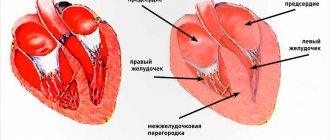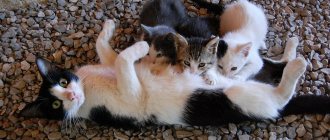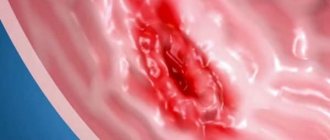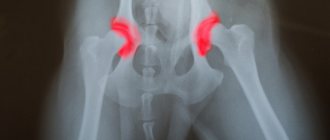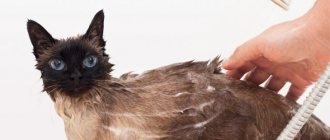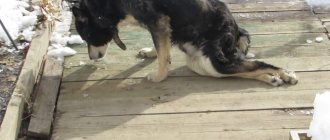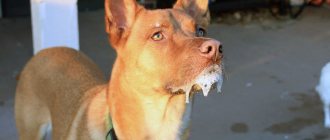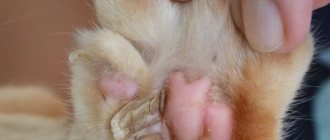Main causes of kidney disease in cats
Kidney disease is a common problem in cats, affecting more than 1/3 of older cats. There are a number of reasons that may affect different age groups and have different consequences. Ultimately, unfortunately, chronic kidney disease (occurs over time) or acute kidney injury (occurs suddenly) will always have the same result—the cat will be sick. Signs of illness in your cat reflect the inability of the kidneys to perform their many functions well enough.
Below you will find a brief description of the ten most common causes of kidney disease. These are the goals of your veterinarian's diagnosis.
At-risk groups
global $ads_google; //data-ad-slot=”2475549904″ $ads_google = empty($ads_google) ? false : true; ?> if ($ads_google == false) {?>
$ads_google = true; ?> } ?>
Urolithiasis occurs in 15% of cats. This high figure is due to the fact that there are many potential factors for the development of the disease. According to statistics, symptoms of urolithiasis are five times more likely to occur in males. This is explained by the anatomical structure of the urethra. Unlike the urinary canal of females, in cats it has an S-shaped bend and a thinner lumen. The disease is most often recorded in animals aged 1 to 6 years. Considering that urolithiasis is often fatal, owners of furry pets need to know all the risk groups. These include cats:
- With a hereditary predisposition. Experts identify a number of breeds that have a genetic tendency to urolithiasis. First of all, these are Persian, Burmese, Siamese, and Maine Coon cats.
- Obese. Excess weight is directly related to overeating. Against the background of impaired metabolism, excess minerals entering the body are deposited in the form of uroliths.
- Castrated. The operation indirectly affects the development of urolithiasis. Neutered cats become less mobile. And this in turn implies the accumulation of excess weight.
- Suffering from chronic or acute infectious diseases. Pathogenic microbes and their metabolic products are the nuclei around which salt crystallization begins.
Infection of the kidney tissue (pyelonephritis)
Infection of kidney tissue by bacteria or, less commonly, fungal organisms is one of the kidney diseases that may have a more favorable outcome, so your veterinarian will be on the lookout. Our goal when treating pyelonephritis is to kill the bacteria that cause destructive inflammation. This should limit the progression of any chronic kidney disease or aid in recovery from acute kidney injury. Urine bacterial culture and susceptibility can determine the type of infection and determine which antibiotic may work best.
Renal obstruction (ureteral obstruction with hydronephrosis)
Kidney stones can fragment and travel through urine into the ureter, the long, narrow tube that connects each kidney to the bladder. They are likely to cause severe pain as they move, and significant difficulty in functioning results in the kidney if they become lodged in the ureter, causing partial or complete blockage. New urine cannot pass out of the kidney easily and it recedes, causing the kidneys to swell. If there is enough pressure, the kidneys become enlarged (hydronephrosis) and damaged. If both ureters become blocked at the same time, this can lead to catastrophic consequences, including death.
Treatment of urolithiasis by veterinarians
If any symptoms of urolithiasis appear, you should contact your veterinarian. He will prescribe the necessary diagnostics (ultrasound, x-rays, tests), help empty the bladder and prescribe a course of treatment. If surgical intervention is not required, treatment is conservative and lasts 2-4 weeks. To treat a cat with ICD, you must:
- Stop the pain effect;
- Restore urination;
- Remove intoxication from the body;
- Carry out antibacterial therapy.
Treatment of urolithiasis in cats is carried out using human and veterinary drugs. Official medicines are supported by phyto-preparations prepared from herbal medicinal raw materials.
What drugs are used
Antispasmodic drugs are used for pain relief. No-shpu is given to cats in tablets; Papaverine, in addition to the tablet form, can be injected. In some cases, injections are given with Baralgin. But this drug can provoke bleeding in case of painful symptoms, so it is used much less frequently. The action of antispasmodics is supported by Prazosin and Terazosin. They help keep the bladder muscles and sphincter muscles relaxed. When the process of urine excretion is stabilized, infusion methods are used. They are aimed at increasing the volume of fluid released and relieving intoxication. The cat is prescribed Glutargin with glucose, Vetavit.
If urolithiasis in cats is accompanied by infection, then the course of treatment includes antibiotics: Nitroxoline, Furadonin, Enrofloxacin. If blood gets into the urine, intramuscular injections with a hemostatic effect are used: Etamzilate (Dicinone), Vikasol. The following may be prescribed as complex medications:
- Stop cystitis
- Uro-ursi
- Urotropin
- Cystokur forte
- Furinaid
- Ipakitina
- Cantaren
- Nephrocat
If your cat has urolithiasis, a laser may be prescribed. It crushes stones and allows them to come out naturally
When is surgery necessary?
global $ads_google; //data-ad-slot=”2475549904″ $ads_google = empty($ads_google) ? false : true; ?> if ($ads_google == false) {?>
$ads_google = true; ?> } ?>
If, with the help of conservative treatment, the stones cannot be removed from the excretory canals, the cat is prescribed surgery. Before surgery, the size of the inclusions, their number, and location are assessed. If the bladder contains sand, then to remove it, wash it with disinfectant solutions. A catheter is used for this.
To remove large stones that cannot pass through the urethra, a urethrostomy is performed. It consists of creating an artificial opening in the canal. Surgical treatment of urolithiasis is carried out under local or general anesthesia. The extracted stones are sent for analysis. He establishes the nature of conglomerates and identifies the causes. This helps develop a course of prevention so that the problem does not recur in the future.
Slags
Many household items can damage your kidneys, not just antifreeze. Petals, leaves and pollen from lilies, even water in their vase, can cause serious kidney injury when cats nibble, lick or chew the flowers or come into contact with water. This is one type of flower that you should avoid completely if you have a cat! Common OTC medications such as aspirin, other nonsteroidal drugs (NSAIDs), or prescription drugs can all cause kidney disease. Cats, who are known for being picky about food and just about everything else, will still eat pills they find in your medicine cabinet or on the floor, so keep all medications in cat-proof containers. And always discuss the use of any medications with your veterinarian.
If you have any reason to believe that your cat has been poisoned, call your veterinary emergency number immediately for help. Contact us at the following numbers:
8-495-221-81-90
8-495-221-84-70
8-499-136-19-18
What to feed a cat with ICD
When treating a cat for urolithiasis, be sure to use special food for cats with urolithiasis. They have a balanced composition of nutrients, minerals and vitamins. The type of cat food is chosen depending on what stones have formed in the genitourinary system. Natural nutrition is selected individually, but in any case it is recommended to avoid seafood and dairy, as they are saturated with mineral salts.
Diet for oxalate stones
Food should contain a minimum of oxalic acid. If the pet is on homemade food, then offal (liver, kidneys), as well as dairy dishes containing a lot of calcium, should be temporarily excluded. The therapeutic diet includes meat, vegetable stew made from cauliflower, carrots, beets and pumpkin, and rice porridge. If you buy ready-made food for your cat, you need to carefully choose the variety. For oxalate stones, the following is suitable for a cat:
- Hill's Prescription Diet Feline K/D or X/D
- Royal Canin URINARY
- Eukanuba Oxalate Urinary Formula
Hill's Prescription Diet Feline X/D. It has a reduced concentration of calcium and phosphorus, but an increased amount of potassium citrate and soluble fiber. This dietary food should not be fed to pregnant cats, young kittens or cats with struvite crystallization. Hill's Prescription Diet Feline brand K/D is used for stones of any nature.
Royal Canin URINARY is used for both therapeutic and preventive nutrition. It increases urine output and inhibits the formation of stones. The food has limitations - high blood pressure and abnormalities in kidney function.
Eukanuba Oxalate Urinary Formula is a low-calorie dietary food with reduced calcium and fat content. Ingredients are chicken, turkey, egg, cornmeal. Wet food comes with fish. Contraindications include pregnancy, lactation, and under one year of age.
Diet for struvite
Phosphate stones, which form in an alkaline environment, require a change in pH to the acidic side. This is partly facilitated by medicinal food or a properly selected diet of natural products. The cat should not be fed dairy products (cottage cheese, cheese, milk), or egg yolks. It is recommended to prepare dishes from oatmeal, rice, liver, egg whites, lean beef and veal. An alternative could be:
- Hill's Prescription Diet Feline S/D, C/D
- Eukanuba Struvite Urinary Formula
Hill's Prescription Diet Feline S/D is a medicinal food that fully meets the nutritional requirements of this category of cats. The composition contains meat, chicken fat, rice, corn flour, starch. This food should not be offered to small kittens under one year old or pregnant cats.
Eukanuba Struvite Urinary Formula. It is used for struvite crystallization and tendency to fullness. Dry granules are made from corn grits, chicken, turkey, animal fat, and dried eggs. This variety is not given to pregnant and lactating females and small kittens.
Damage to kidney filters (glomerular disease)
The glomerulus (the kidney's filtration mechanism) may be involved in feline kidney disease. Early on, we don't expect any signs of illness from this condition, but since glomerular disease can be caused by infections such as FIP/FeLV or cancer (among other things), time can make problems worse. Over time, inflammation in the glomerulus of the kidney damages the surrounding kidney tissue, creating chronic kidney disease, which makes your cat feel sick.
Treatment of urolithiasis at home
If you notice signs of urolithiasis in your cat, you should immediately contact the veterinary clinic. But you can use some home remedies to alleviate the symptoms. They help make the suffering animal feel better. A warm heating pad is placed on the stomach. After visiting the veterinary clinic, the owner’s duties include careful care of the animal. He is provided with only home conditions; walks are temporarily canceled. Great importance is attached to food, purified water, a clean tray, and compliance with the schedule for taking medications prescribed for treatment.
FIP or FIP (feline infectious peritonitis)
The kidneys are the main target for this severe inflammatory disease of domestic and feral cats. Some cats, especially young ones, develop a fever and effusions (fluid accumulation) in the chest or abdomen, but these quickly subside. Cats with non-effusive (dry) FIP tend to be older and show more subtle signs of the disease. Your veterinarian may become concerned about the possibility of FIP if the kidneys feel swollen and lumpy, lumpy (inflammatory cells can distort the outer layers of the kidney).
Causes of ICD
There are many factors that contribute to the development of urolithiasis. All reasons are conventionally divided into external and internal. In this case, a combination of several provoking conditions is possible.
Exogenous
External causes are related to the living conditions, activity, and nutrition of the cat. One of the first places is irrational nutrition. An imbalance of proteins, fats, and carbohydrates leads to a shift in urine pH to the acidic or alkaline side. In both cases, solid conglomerates begin to form in the urinary organs. Vitamin deficiencies are also related to diet. All biologically active substances are important, but this is most true for vitamins A and D. Vitamin deficiency leads to metabolic disorders.
Thirdly, the lack of water and/or the high saturation of the liquid with minerals affects it. This factor affects the concentration of urine. In a more saturated liquid, solid inclusions form faster. The need for water increases if the cat lives in hot home conditions.
Cancer
Fortunately, kidney cancer is not very common in cats. Unfortunately, treatment options for kidney cancer are quite limited. Solitary tumors affecting only one kidney can be removed surgically with a very good outcome if the tumor is benign or if the cancer has not spread to other parts of the body (including the opposite kidney). Your cat only needs one good kidney to function properly. If the cancer has already spread throughout the body (as usually happens with lymphosarcoma), surgery will no longer be an option for treatment. Microscopic analysis of a biopsy, that is, material obtained with a small special needle, is necessary for the correct diagnosis of cancer and for an appropriate treatment plan.
Prevention of urolithiasis
After the cat’s treatment is completed, it is necessary to adhere to the rules of prevention for the rest of its life. It also doesn’t hurt to remember these measures if your pet is prone to urolithiasis. Prevention consists of proper selection of dietary food, drinking regimen, medications and folk remedies.
global $ads_google; //data-ad-slot=”2475549904″ $ads_google = empty($ads_google) ? false : true; ?> if ($ads_google == false) {?>
$ads_google = true; ?> } ?>
Food for the prevention of urolithiasis
The cat's nutrition should be organized taking into account the nature of the stones. Your cat should be fed premium ready-made food. The varieties that were used in treatment are also suitable for prevention. The same goes for a natural diet. Products that, during metabolism, acidify or, conversely, alkalize urine, are excluded from the diet. In any case, the cat's menu should not contain strong meat broths, sausages, fatty and salty foods. Food should be varied and nutritious.
Your pet should always have fresh water of low mineralization.
Medications
Many medications that are used to treat urolithiasis are also used for prevention. For this purpose, it is advisable to select products with natural composition. The best option is to consult a doctor. Preventive veterinary medications for urolithiasis include Kotervin, Urinari tract support, Furinite, Cantharis composite.
Kotervin removes salts, promotes better urine flow, relieves inflammation, dissolves stones (with the exception of oxalates). It contains only natural ingredients: extracts of horsetail, steelhead, knotweed and bird's eye.
Urinari tract support is a complex veterinary preparation based on bearberry, phylanthus, cranberry, marshmallow, dandelion, and corn silk. In addition to the salt-removing, diuretic and anti-inflammatory effects, Urinari has a mild immunomodulatory effect.
Folk remedies
The collection of traditional medicine offers many recipes that help improve the health of a cat that has had or is prone to urolithiasis. They are not potent drugs, but provide preventive support.
In the morning on an empty stomach, it is recommended to give the cat strawberry or carrot juice (1 teaspoon each). An infusion of lavender, birch, currant, hops, chamomile, plantain, horsetail and rosehip is also useful for oral administration. Herbs and fruits are taken in 5 grams each, then 5 grams of the collection is poured into 500 ml of boiling water. The pet is given 10 ml 2-3 times a day for a month.
When bathing, you can use a herbal bath, which is prepared from a collection of herbs (chamomile, dried grass, birch, oregano, sage, linden). For 500 ml of boiling water, take 1 gram of each type of plant material. The infusion is poured into a basin where the cat will bathe.
Protein metabolism disorder (amyloidosis)
Patients with amyloidosis lose function of certain organs, including the kidneys, as protein deposits replace normal tissue. It is an unusual consequence of chronic inflammation affecting other parts of the body, or it may be genetic in some breeds such as the Abyssinian, Siamese or Oriental Shorthair. Amyloid deposits cannot be removed, and functional kidney tissue that is lost cannot be replaced, so the prognosis is not good.
